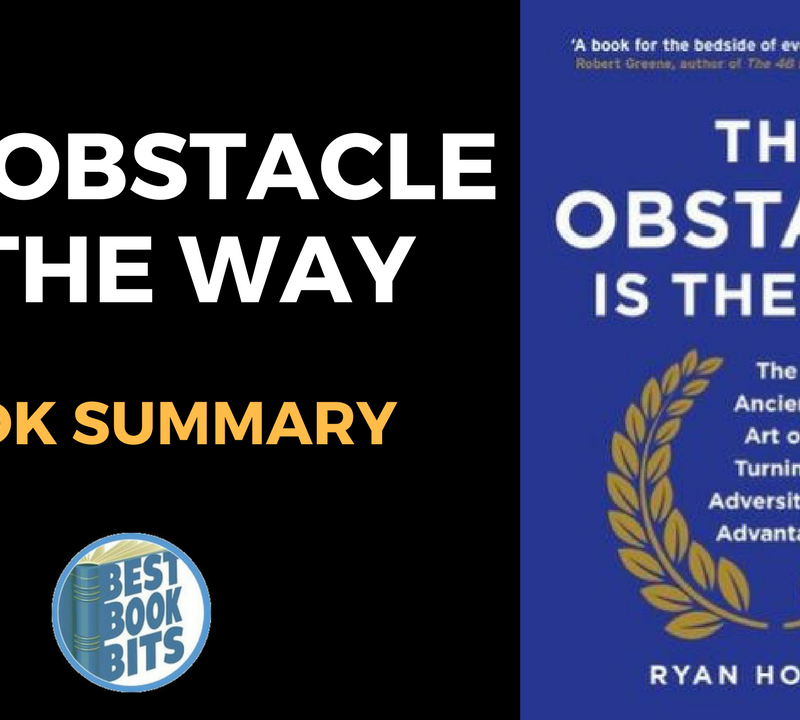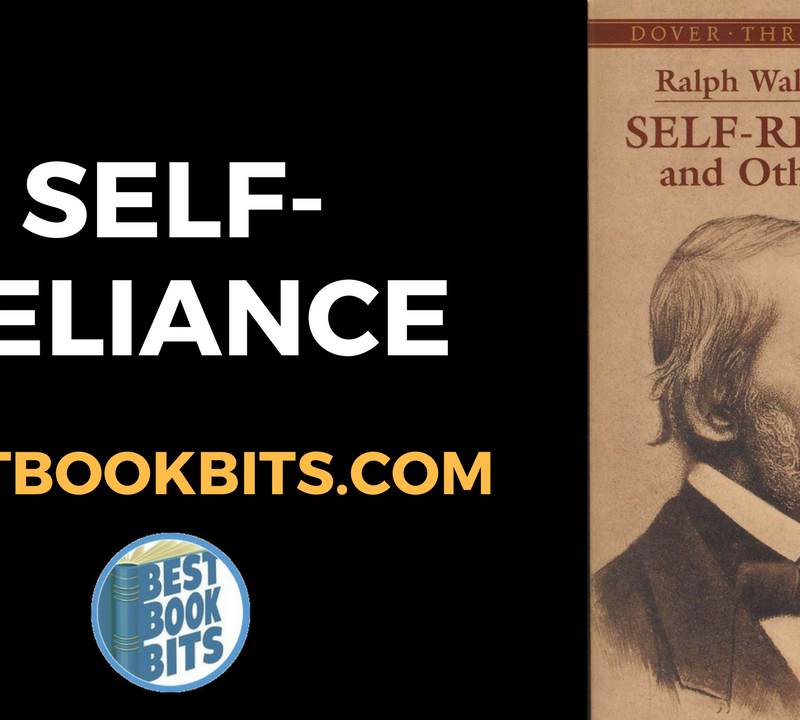JOIN THE ‘BEST BOOK CLUB’ NOW HERE
DOWNLOAD THIS FREE PDF SUMMARY HERE
STOP TRYING TO ACHIEVE YOUR GOALS BY YOURSELF AND BE COACHED TODAY HERE
CHECK OUT THE FOLLOWING Book | Summaries | Course | YouTube |Spotify | Instagram | Facebook | Newsletter | Website
Letters from a Stoic by Seneca
Lucius Annaeus Seneca, statesman, philosopher, advocate and man of letters, was born at Cordoba in Spain around 4 BC. He rose to prominence in Rome, pursuing a career in the courts and political life, for which he had been trained, while also acquiring celebrity as an author of tragedies and essays. Falling foul of successive emperors (Caligula in AD 39 and Claudius in AD 41), he spent eight years in exile, allegedly for an affair with Caligula’s sister. Recalled in AD 49, he was made praetor and was appointed tutor to the boy who was to become, in AD 54, the emperor Nero. On Nero’s succession, Seneca acted for some eight years as an unofficial chief minister.
The early part of this reign was remembered as a period of sound government, for which the main credit seems due to Seneca. His control over Nero declined as enemies turned the emperor against him with representations that his popularity made him a danger, or with accusations of immorality or excessive wealth. Retiring from public life he devoted his last three years to philosophy and writing, particularly the Letters to Lucilius. In AD 65 following the discovery of a plot against the emperor, in which he was thought to be implicated, he and many others were compelled by Nero to commit suicide. His fame as an essayist and dramatist lasted until two or three centuries ago, when he passed into literary oblivion, from which the twentieth century has seen a considerable recovery.
Book Summary Notes
It is man’s duty to live in conformity with the divine will, and this means, firstly, bringing his life into line with ‘nature’s laws’, and secondly, resigning himself completely and uncomplainingly to whatever fate may send him.
In this way we shall arrive at the true end of man, happiness, through having attained the one and only good thing in life, the ideal or goal called arete in Greek and in Latin virtus – for which the English word ‘virtue’ is so unsatisfactory a translation. This, the summum bonum or ‘supreme ideal’, is usually summarized in ancient philosophy as a combination of four qualities: wisdom (or moral insight), courage, self-control and justice (or upright dealing).
Nothing, to my way of thinking, is a better proof of a well ordered mind than a man’s ability to stop just where he is and pass some time in his own company.
To be everywhere is to be nowhere. People who spend their whole life travelling abroad end up having plenty of places where they can find hospitality but no real friendships.
The same must needs be the case with people who never set about acquiring an intimate acquaintanceship with any one great writer, but skip from one to another, paying flying visits to them all.
a plant which is frequently moved never grows strong.
So always read well-tried authors, and if at any moment you find yourself wanting a change from a particular author, go back to ones you have read before.
Each day, too, acquire something which will help you to face poverty, or death, and other ills as well.
It is not the man who has too little who is poor, but the one who hankers after more
You ask what is the proper limit to a person’s wealth? First, having what is essential, and second, having what is enough.
But if you are looking on anyone as a friend when you do not trust him as you trust yourself, you are making a grave mistake, and have failed to grasp sufficiently the full force of true friendship.
Regard him as loyal, and you will make him loyal. Some men’s fear of being deceived has taught people to deceive them; by their suspiciousness they give them the right to do the wrong thing by them.
For a delight in bustling about is not industry – it is only the restless energy of a hunted mind. And the state of mind that looks on all activity as tiresome is not true repose, but a spineless inertia.
JOIN THE ‘BEST BOOK CLUB’ NOW HERE
DOWNLOAD THIS FREE PDF SUMMARY HERE
STOP TRYING TO ACHIEVE YOUR GOALS BY YOURSELF AND BE COACHED TODAY HERE
CHECK OUT THE FOLLOWING Book | Summaries | Course | YouTube |Spotify | Instagram | Facebook | Newsletter | Website
Ask nature: she will tell you that she made both day and night.
I VIEW with pleasure and approval the way you keep on at your studies and sacrifice everything to your single-minded efforts to make yourself every day a better man.
Avoid shabby attire, long hair, an unkempt beard, an outspoken dislike of silverware, sleeping on the ground and all other misguided means to self-advertisement.
Let our aim be a way of life not diametrically opposed to, but better than that of the mob.
Anyone entering our homes should admire us rather than our furnishings.
Limiting one’s desires actually helps to cure one of fear. ‘Cease to hope,’ he says, ‘and you will cease to fear.’
Fear keeps pace with hope. Nor does their so moving together surprise me; both belong to a mind in suspense, to a mind in a state of anxiety through looking into the future. Both are mainly due to projecting our thoughts far ahead of us instead of adapting ourselves to the present.
There is no enjoying the possession of anything valuable unless one has someone to share it with.
But nothing is as ruinous to the character as sitting away one’s time at a show – for it is then, through the medium of entertainment, that vices creep into one with more than usual ease.
But the right thing is to shun both courses: you should neither become like the bad because they are many, nor be an enemy of the many because they are unlike you.
Associate with people who are likely to improve you. Welcome those whom you are capable of improving. The process is a mutual one: men learn as they teach.
‘To me,’ says Democritus, ‘a single man is a crowd, and a crowd is a single man.’
The many speak highly of you, but have you really any grounds for satisfaction with yourself if you are the kind of person the many understand? Your merits should not be outward facing.
Indulge the body just so far as suffices for good health.
What you have to understand is that thatch makes a person just as good a roof as gold does.
What fortune has made yours is not your own.
But while he does not hanker after what he has lost, he does prefer not to lose them.
‘Any man,’ he says, ‘who does not think that what he has is more than ample, is an unhappy man, even if he is the master of the whole world.’
‘We need to set our affections on some good man and keep him constantly before our eyes, so that we may live as if he were watching us and do everything as if he saw what we were doing.’
Happy the man who improves other people not merely when he is in their presence but even when he is in their thoughts!
Be always pointing him out to yourself either as your guardian or as your model. There is a need, in my view, for someone as a standard against which our characters can measure themselves.
We have good reason to say: ‘I trust this finds you in pursuit of wisdom.’
So continually remind yourself, Lucilius, of the many things you have achieved. When you look at all the people out in front of you, think of all the ones behind you.
Why be concerned about others, come to that, when you’ve outdone your own self?
JOIN THE ‘BEST BOOK CLUB’ NOW HERE
DOWNLOAD THIS FREE PDF SUMMARY HERE
STOP TRYING TO ACHIEVE YOUR GOALS BY YOURSELF AND BE COACHED TODAY HERE
CHECK OUT THE FOLLOWING Book | Summaries | Course | YouTube |Spotify | Instagram | Facebook | Newsletter | Website
IT is clear to you, I know, Lucilius, that no one can lead a happy life, or even one that is bearable, without the pursuit of wisdom, and that the perfection of wisdom is what makes the happy life,
It moulds and builds the personality, orders one’s life, regulates one’s conduct, shows one what one should do and what one should leave undone, sits at the helm, and keeps one on the correct course as one is tossed about in perilous seas.
‘If you shape your life according to nature, you will never be poor; if according to people’s opinions, you will never be rich.’
Remaining dry and sober takes a good deal more strength of will when everyone about one is puking drunk; it takes a more developed sense of fitness, on the other hand, not to make of oneself a person apart, to be neither indistinguishable from those about one nor conspicuous by one’s difference, to do the same things but not in quite the same manner. For a holiday can be celebrated without extravagant festivity.
Set aside now and then a number of days during which you will be content with the plainest of food, and very little of it, and with rough, coarse clothing, and will ask yourself, ‘Is this what one used to dread?’
So, my dear Lucilius, start following these men’s practice and appoint certain days on which to give up everything and make yourself at home with next to nothing. Start cultivating a relationship with poverty.
A good character is the only guarantee of everlasting, carefree happiness.
But something that can never be learnt too thoroughly can never be said too often. With some people you only need to point to a remedy; others need to have it rammed into them.
‘How can you wonder your travels do you no good, when you carry yourself around with you? You are saddled with the very thing that drove you away.’
‘I wasn’t born for one particular corner: the whole world’s my home country.’
‘A consciousness of wrongdoing is the first step to salvation.’
This is why I look on people like this as a spiritless lot – the people who are forever acting as interpreters and never as creators, always lurking in someone else’s shadow. They never venture to do for themselves the things they have spent such a long time learning.
A philosopher, whose delivery – like his life – should be well-ordered; nothing can be well-regulated if it is done in a breakneck hurry.
Nonetheless what is waited for does sink in more readily than what goes flying past;
Besides, how can a thing possibly govern others when it cannot be governed itself?
The upshot, then, of what I have to say is this: I am telling you to be a slow-speaking person.
In each and every good man A god (what god we are uncertain) dwells.
No one should feel pride in anything that is not his own.
Man’s ideal state is realized when he has fulfilled the purpose for which he was born. And what is it that reason demands of him? Something very easy – that he live in accordance with his own nature.
JOIN THE ‘BEST BOOK CLUB’ NOW HERE
DOWNLOAD THIS FREE PDF SUMMARY HERE
STOP TRYING TO ACHIEVE YOUR GOALS BY YOURSELF AND BE COACHED TODAY HERE
CHECK OUT THE FOLLOWING Book | Summaries | Course | YouTube |Spotify | Instagram | Facebook | Newsletter | Website
No one can lead a happy life if he thinks only of himself and turns everything to his own purposes.
With afflictions of the spirit, though, the opposite is the case: the worse a person is, the less he feels it.
Voices, I think, are more inclined to distract one than general noise; noise merely fills one’s ears, battering away at them while voices actually catch one’s attention.
The fact that the body is lying down is no reason for supposing that the mind is at peace. Rest is sometimes far from restful.
There’s no difference between the one and the other – you didn’t exist and you won’t exist – you’ve no concern with either period.
Comforting thoughts (provided they are not of a discreditable kind) contribute to a person’s cure; anything which raises his spirits benefits him physically as well.
My own advice to you – and not only in the present illness but in your whole life as well – is this: refuse to let the thought of death bother you: nothing is grim when we have escaped that fear.
Nobody can be in acute pain and feel it for long. Nature in her unlimited kindness to us has so arranged things as to make pain either bearable or brief.
A man is as unhappy as he has convinced himself he is.
‘I’m suffering severe pain,’ you may say. Well does it stop you suffering it if you endure it in a womanish fashion?
An illness that’s swift and short will have one of two results: either oneself or it will be snuffed out. And what difference does it make whether I or it disappears? Either way there’s an end to the pain.
For a life spent viewing all the variety, the majesty, the sublimity in things around us can never succumb to ennui: the feeling that one is tired of being, of existing, is usually the result of an idle and inactive leisure.
And we should, indeed, live as if we were in public view, and think, too, as if someone could peer into the inmost recesses of our hearts – which someone can!
Tell them of all the things men do that they would blush at sober, and that drunkenness is nothing but a state of self-induced insanity.
Well, I have no respect for any study whatsoever if its end is the making of money.
What’s the use of overcoming opponent after opponent in the wrestling or boxing rings if you can be overcome by your temper?
It is incredible, Lucilius, how easily even great men can be carried away from the truth by the sheer pleasure of holding forth on a subject.
The story is told that someone complained to Socrates that travelling abroad had never done him any good and received the reply: ‘What else can you expect, seeing that you always take yourself along with you when you go abroad?’ What a blessing it would be for some people if they could only lose themselves!
Travelling doesn’t make a man a doctor or a public speaker: there isn’t a single art which is acquired merely by being in one place rather than another.
It’s not because they’re hard that we lose confidence; they’re hard because we lack the confidence.
But first we have to reject the life of pleasures; they make us soft and womanish; they are insistent in their demands, and what is more, require us to make insistent demands on fortune.
Every person without exception has someone to whom he confides everything that is confided to himself.
Here is your noble spirit – the one which has put itself in the hands of fate; on the other side we have the puny degenerate spirit which struggles, and which sees nothing right in the way the universe is ordered, and would rather reform the gods than reform itself.
A person going out into the sun, whether or not this is what he is going out for, will acquire a tan.
People prone to every fault they denounce are walking advertisements of the uselessness of their training.
More active and commendable still is the person who is waiting for the daylight and intercepts the first rays of the sun; shame on him who lies in bed dozing when the sun is high in the sky, whose waking hours commence in the middle of the day – and even this time, for a lot of people, is the equivalent of the small hours.
Can you imagine that these people know how one ought to live when they do not know when one ought to live?
We are attracted by wealth, pleasures, good looks, political advancement and various other welcoming and enticing prospects: we are repelled by exertion, death, pain, disgrace and limited means. It follows that we need to train ourselves not to crave for the former and not to be afraid of the latter.
Philosophy has no business to supply vice with excuses; a sick man who is encouraged to live in a reckless manner by his doctor has not a hope of getting well.
JOIN THE ‘BEST BOOK CLUB’ NOW HERE
DOWNLOAD THIS FREE PDF SUMMARY HERE
STOP TRYING TO ACHIEVE YOUR GOALS BY YOURSELF AND BE COACHED TODAY HERE
CHECK OUT THE FOLLOWING Book | Summaries | Course | YouTube |Spotify | Instagram | Facebook | Newsletter | Website













